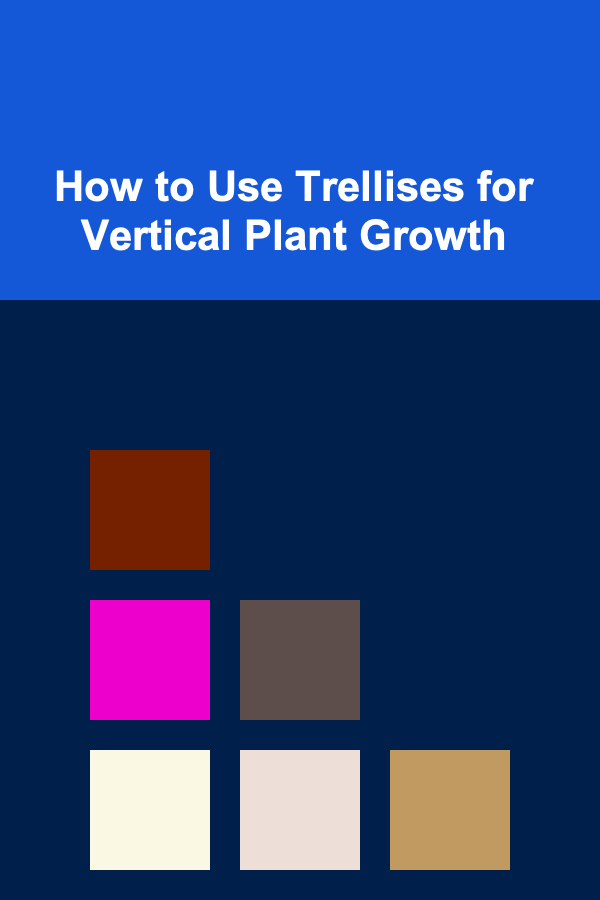
Living a Life of Purpose Through Minimalism
ebook include PDF & Audio bundle (Micro Guide)
$12.99$6.99
Limited Time Offer! Order within the next:

In a world saturated with consumerism and constant striving for more, the concept of minimalism offers a refreshing alternative: a life intentionally focused on what truly matters. Minimalism isn't about deprivation; it's about freedom. It's a conscious choice to declutter not just our physical spaces, but also our minds and our lives, allowing us to make room for purpose, passion, and genuine connection. This essay explores how embracing minimalism can be a powerful pathway to discovering and living a life of profound purpose.
Understanding Minimalism: Beyond the Decluttering
Minimalism is often superficially understood as simply owning fewer possessions. While decluttering is an essential component, the true essence of minimalism lies deeper. It's a philosophy, a lifestyle, and a mindset shift that prioritizes experiences, relationships, and personal growth over material accumulation. It's about asking ourselves critical questions: What truly adds value to my life? What am I holding onto out of habit, fear, or social pressure? And what am I willing to let go of to make space for the things that truly matter?
Think of it this way: our possessions, commitments, and even our thoughts can act as anchors, weighing us down and preventing us from moving freely towards our goals and aspirations. Minimalism is the act of cutting those anchor lines, allowing us to navigate the waters of life with greater agility and intentionality.
The Core Principles of Minimalism:
- Intentionality: Every possession, every commitment, is a conscious choice, aligned with your values and goals.
- Quality over Quantity: Investing in fewer, higher-quality items that last longer and provide more satisfaction.
- Freedom: Releasing the burden of ownership and the constant pursuit of more, leading to greater financial and emotional freedom.
- Experience over Materialism: Prioritizing experiences, relationships, and personal growth over acquiring material possessions.
- Consciousness: Being mindful of your consumption habits and their impact on the environment and your well-being.
The Clutter-Purpose Connection: How Stuff Obscures Your Path
The sheer volume of "stuff" in our lives often acts as a significant barrier to identifying and pursuing our purpose. Clutter isn't just unsightly; it's a mental distraction. It competes for our attention, drains our energy, and creates a sense of overwhelm. When our physical environment is chaotic, it's difficult to cultivate clarity and focus in our minds.
Consider the following scenarios:
- The Overstuffed Closet: A closet overflowing with clothes can lead to decision fatigue every morning. Instead of focusing on your work or passions, you're spending precious mental energy deciding what to wear.
- The Unfinished Projects: A basement filled with half-completed DIY projects can be a constant reminder of your failures and unrealized ambitions. This can lead to feelings of guilt and inadequacy.
- The Digital Hoard: An email inbox overflowing with unread messages and a hard drive filled with unused files can create a sense of anxiety and overwhelm.
In each of these examples, clutter acts as a form of mental baggage, weighing us down and preventing us from fully engaging with our lives. By decluttering our physical and digital spaces, we create the space necessary to identify our passions, explore our interests, and ultimately, discover our purpose.
Unveiling Your Purpose Through Minimalist Practices
Minimalism provides a framework for intentional living, which in turn, facilitates the discovery of your purpose. Here are some specific practices that can help you on this journey:
1. The Decluttering Process: A Journey of Self-Discovery
Decluttering is more than just getting rid of unwanted items; it's an opportunity for introspection and self-discovery. As you sort through your belongings, ask yourself these questions:
- Does this item bring me joy? (Inspired by Marie Kondo's KonMari method)
- Does this item serve a practical purpose in my life?
- When was the last time I used this item?
- What emotions or memories are associated with this item?
- Am I holding onto this item out of obligation, guilt, or fear of scarcity?
The answers to these questions can reveal a lot about your values, your priorities, and your limiting beliefs. You might discover that you're holding onto items that represent a past version of yourself, or that you're clinging to possessions that symbolize unfulfilled dreams. By letting go of these items, you're also letting go of the emotional baggage they carry, creating space for new experiences and opportunities.
2. Intentional Consumption: Aligning Your Purchases with Your Values
Minimalism encourages conscious consumption, which means being mindful of your purchasing habits and aligning your spending with your values. Before making a purchase, ask yourself:
- Do I really need this item?
- Is there a sustainable or ethical alternative?
- Will this item add lasting value to my life, or is it a fleeting impulse buy?
- How does this purchase align with my values?
By making intentional purchasing decisions, you can avoid accumulating unnecessary possessions and focus your resources on experiences and activities that align with your purpose. For example, instead of buying the latest gadget, you might invest in a course that will enhance your skills or a trip that will broaden your horizons.
3. Time Minimalism: Reclaiming Your Most Valuable Asset
Just as we can declutter our physical possessions, we can also declutter our schedules. Time minimalism involves intentionally prioritizing your time and eliminating activities that don't align with your values or contribute to your overall well-being. Ask yourself:
- What activities drain my energy and leave me feeling depleted?
- What commitments am I fulfilling out of obligation rather than genuine interest?
- What activities bring me joy and help me feel more connected to my purpose?
By saying "no" to commitments that don't serve you, you can create more time for activities that do, such as pursuing your passions, spending time with loved ones, or engaging in self-care. This intentional use of time is crucial for exploring your interests, developing your skills, and ultimately, discovering your purpose.
4. Digital Minimalism: Taming the Technological Beast
In today's digital age, our attention is constantly being bombarded with notifications, emails, and social media updates. Digital minimalism involves intentionally curating your digital environment to minimize distractions and maximize focus. This might involve:
- Unsubscribing from unnecessary email lists.
- Deleting unused apps from your phone.
- Setting time limits for social media use.
- Creating a designated "digital detox" time each day.
By minimizing digital distractions, you can create more space for focused work, creative pursuits, and meaningful connections. This can lead to increased productivity, reduced stress, and a greater sense of well-being, all of which can contribute to the discovery and pursuit of your purpose.
5. Mindful Consumption of Information: Curating Your Mental Diet
We are constantly bombarded with information, from news headlines to social media posts. Being mindful of the information we consume is crucial for mental well-being and clarity. Just as we curate our physical belongings, we should also curate our mental diet. Ask yourself:
- Where do I get my news and information? Are these sources reliable and unbiased?
- What kind of content am I consuming on social media? Is it uplifting and inspiring, or is it negative and draining?
- Am I spending too much time consuming information and not enough time creating or reflecting?
By being selective about the information we consume, we can protect ourselves from negativity, reduce stress, and create more space for critical thinking and creative pursuits. This, in turn, can help us clarify our values and identify our purpose.
Minimalism as a Tool for Self-Reflection and Introspection
The process of decluttering, simplifying, and intentional living inherent in minimalism provides ample opportunities for self-reflection and introspection. By slowing down and paying attention to our thoughts, feelings, and behaviors, we can gain valuable insights into our true selves. Consider these questions:
- What am I truly passionate about? What activities make me feel alive and energized?
- What are my core values? What principles are most important to me in life?
- What are my strengths and talents? How can I use them to make a positive impact on the world?
- What am I afraid of? What limiting beliefs are holding me back from pursuing my dreams?
Journaling, meditation, and spending time in nature are all valuable tools for self-reflection. By regularly engaging in these practices, we can deepen our understanding of ourselves and gain greater clarity about our purpose.
The Intersection of Minimalism, Purpose, and Happiness
While minimalism isn't a guaranteed path to happiness, it can certainly create a more conducive environment for it. By eliminating distractions, simplifying our lives, and aligning our actions with our values, we can free ourselves from the pursuit of external validation and focus on cultivating inner peace and contentment.
Research has shown that materialism is often associated with lower levels of happiness and well-being. People who prioritize material possessions tend to be more anxious, depressed, and less satisfied with their lives. In contrast, people who embrace minimalism often report feeling more grateful, content, and fulfilled.
The connection between minimalism, purpose, and happiness is multifaceted. When we live intentionally and focus on what truly matters, we are more likely to experience:
- A sense of meaning and purpose: Knowing that our lives are aligned with our values and that we are making a positive contribution to the world can bring a deep sense of satisfaction.
- Stronger relationships: By decluttering our schedules and prioritizing meaningful connections, we can cultivate deeper and more fulfilling relationships with loved ones.
- Greater financial freedom: By reducing our consumption and focusing on quality over quantity, we can free up resources to invest in experiences, education, or charitable causes.
- Improved mental and physical health: By simplifying our lives and reducing stress, we can improve our overall well-being and create a more sustainable and enjoyable lifestyle.
Practical Steps to Begin Your Minimalist Journey
Embarking on a minimalist journey doesn't require an overnight transformation. It's a gradual process of self-discovery and intentional living. Here are some practical steps you can take to begin:
- Start with a small space: Choose a small area, such as a drawer, a shelf, or a corner of your room, and declutter it thoroughly. This will give you a sense of accomplishment and motivate you to continue.
- The 20/20 Rule: Could you replace the item you're considering getting rid of for less than $20 in less than 20 minutes from your current location? If so, let it go.
- The One-In, One-Out Rule: For every new item you bring into your home, get rid of one similar item. This will help prevent clutter from accumulating.
- Embrace the "Maybe Box": If you're unsure about getting rid of an item, put it in a "maybe box." If you haven't needed it after a set amount of time (e.g., three months), donate it.
- Challenge your consumption habits: Before making a purchase, pause and ask yourself if you truly need the item. Consider borrowing, renting, or buying secondhand whenever possible.
- Practice gratitude: Take time each day to appreciate the things you already have. This will help you shift your focus from wanting more to being content with what you have.
- Connect with a minimalist community: Join online forums or local groups to connect with like-minded individuals and share your experiences.
- Be patient with yourself: Minimalism is a journey, not a destination. Don't get discouraged if you slip up or feel overwhelmed. Just keep moving forward, one step at a time.
Conclusion: Embracing Purpose, One Less Possession at a Time
Minimalism is more than just a trend; it's a powerful tool for creating a more intentional, fulfilling, and purposeful life. By decluttering our physical spaces, simplifying our schedules, and aligning our actions with our values, we can free ourselves from the burden of materialism and create space for what truly matters: meaningful relationships, personal growth, and a deep sense of purpose.
The journey towards minimalism is a journey of self-discovery. It's about uncovering our true values, identifying our passions, and living in alignment with our authentic selves. It's about choosing experiences over possessions, connection over consumption, and purpose over accumulation. And ultimately, it's about creating a life that is not just simpler, but also richer, more meaningful, and more deeply fulfilling.
Reading More From Our Other Websites
- [Personal Investment 101] How to Earn Money Using Deep Learning Models for Data Analysis
- [Soap Making Tip 101] Man-Made Suds: A Beginner's Guide to Crafting Masculine Soap
- [Home Holiday Decoration 101] How to Decorate Your Staircase for the Holidays
- [Home Space Saving 101] How to Master Compact Living: 7 Game-Changing Tiny Living Hacks You Need to Know
- [Personal Investment 101] How to Analyze a Company's Financial Report to Make Informed Investment Decisions
- [Stamp Making Tip 101] How to Create Reversible Stamps for Double‑Sided Printing Projects
- [Home Holiday Decoration 101] How to Incorporate Family Traditions into Your Holiday Decor
- [Personal Investment 101] Generate Passive Income by Automating Deep Learning Workflows
- [Home Renovating 101] How to Transform Your Attic into a Usable Space
- [Horseback Riding Tip 101] Finding Low-Cost Lessons: How to Learn to Ride Without Breaking the Bank

How To Choose the Right Harness for Your Dog
Read More
How to Choose the Right Pet Carrier for Travel Comfort
Read More
How to Designate a Space for Unused or Extra Supplies
Read More
How to Use Trellises for Vertical Plant Growth
Read More
How to Design a Study Schedule Planner for Exam Cramming
Read More
How to Ace Your Logistics Coordinator Interview
Read MoreOther Products

How To Choose the Right Harness for Your Dog
Read More
How to Choose the Right Pet Carrier for Travel Comfort
Read More
How to Designate a Space for Unused or Extra Supplies
Read More
How to Use Trellises for Vertical Plant Growth
Read More
How to Design a Study Schedule Planner for Exam Cramming
Read More